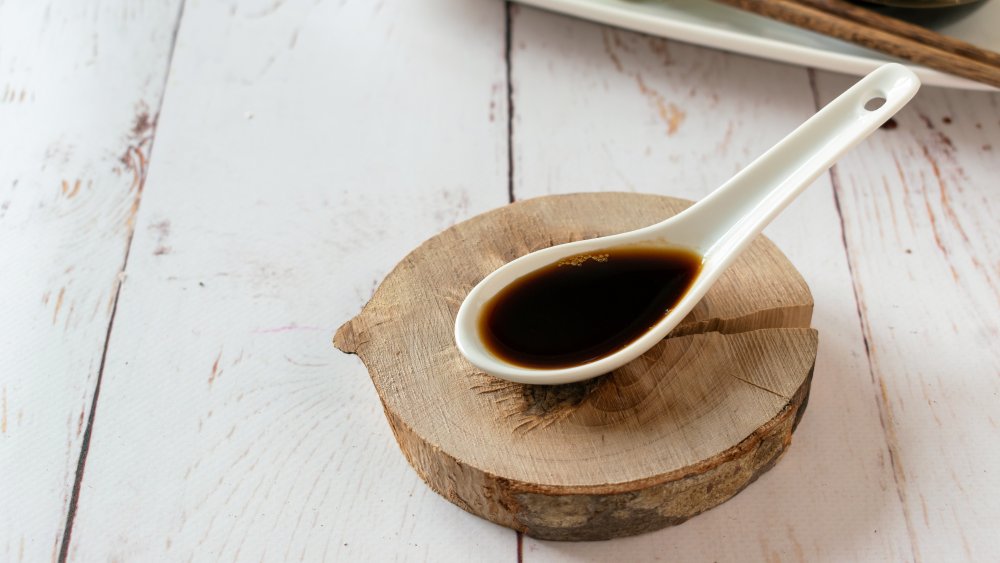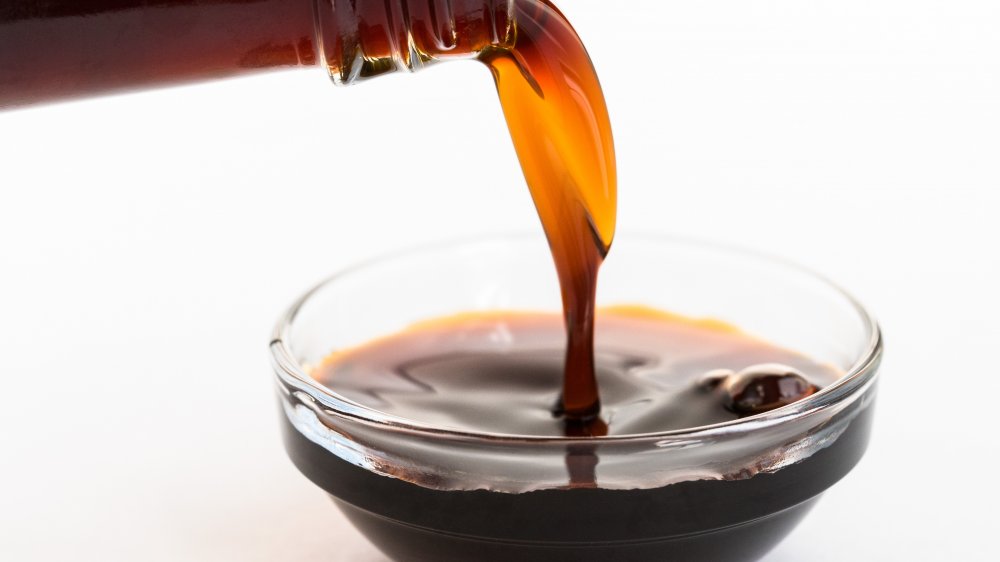Is Coconut Aminos Really Better For You Than Soy Sauce?
People are buzzing about coconut aminos, which is reportedly a lot like soy sauce, only better for you. Don't let the name of this condiment fool you — coconut aminos doesn't actually taste like coconut. Instead, it tastes like a slightly sweeter (and less rich) soy sauce.
"It performs very similarly to soy sauce in cooking," registered dietician Stefani Sassos told Good Housekeeping. A lot of recipes recommend using coconut aminos as a soy sauce substitute, but is it really all it's cracked up to be?
First, we have to look at what coconut aminos is. Like soy sauce, coconut aminos is a fermented product. Soy sauce is fermented from soybeans, while coconut aminos comes from fermented coconut palm sap and sea salt. While soy sauce can trigger allergic reactions, coconut aminos is free of soy, wheat, and gluten, making it an especially good alternative for people with food sensitivities.
Is coconut aminos good for you?
While coconut aminos has been touted as an ultra-healthy substitute for soy sauce, it's far from a superfood. It's true that the condiment has less sodium than soy sauce, but it's still probably not a good idea to pour it on all your food. Soy sauce is notoriously high in sodium, approaching 1000 mg per tablespoon depending on brand. Coconut aminos has 270 mg which, while less sodium than soy sauce, is still not super healthy. "When you're cooking with it, the sodium can certainly add up," said Sassos. Still, if you're looking to cut some sodium from a meal, coconut aminos can be a healthier alternative.
If you're sensitive to soy, wheat, or gluten, or trying to lower your sodium intake, coconut aminos is certainly a good option, but don't expect any health benefits beyond that. Berkeley Wellness reported that claims of the health benefits of coconut aminos include that the condiment supposedly reduces your risk of a variety of ailments such as heart disease and diabetes. It also allegedly helps you lose weight and promotes mental health.
However, if all that sounds too good to be true, that's because it is. None of the so-called wonders of coconut aminos have been backed by scientific studies.


